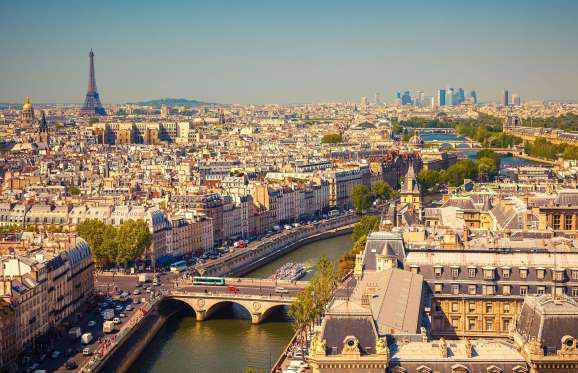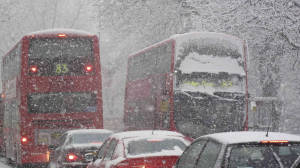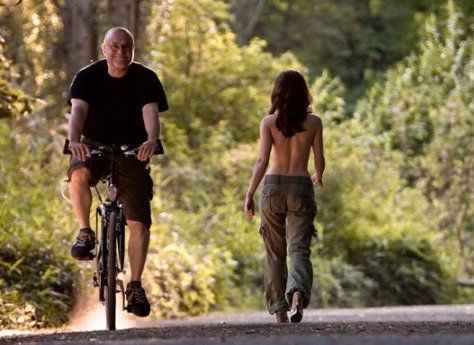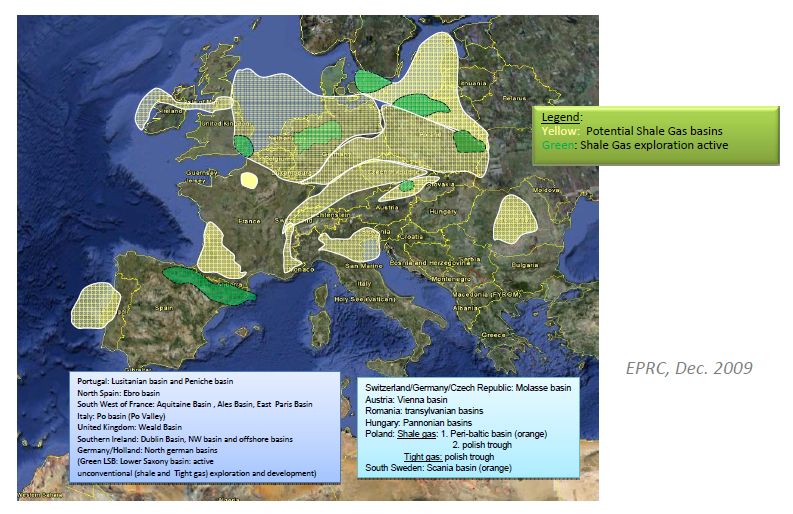357: Position Yourself for the Peak Oil Plateau
01-13-2011

Transition: In the next fifteen years there will be a big transition as energy prices rise and growth rates in Western oil importing nations stay depressed or decline. Inflation is likely to remain a long term problem as commodities prices escalate and resources are required in developing countries. As countries like India, Brazil and China develop, this will put the brakes on growth in western Europe and USA. Middle East and Africa are also likely to see stronger growth than developed nations because they are resource rich with growing populations.
Lower Growth If Any At All: The high growth rate in western developed nations was possible off the back of cheap oil, coal and gas. This started in the Industrial Revolution and continued when large-scale oil usage began int he 1930s. This fuelled phenomenal growth and standards of living increase - primarily in western Europe and USA. China at this stage was an poor agrarian communist state with no free markets. India was bogged down bureaucracy, poverty regulation. But now the developing world has awoken and been liberated after the collapse of the Soviet Empire (from 1988), a market economic drive in communist China (from 1998) and liberalisation in India (from 2004). This has unleashed a massive 5 billion people all wanting the same standard of living as the USA - motivated, organised, educated and hard working.
Peak Oil (crude) was 2005. Peak Oil (all liquids) was July 2008 – it’s unlikely oil production  will rise significantly from these levels – we are now on an undulating “Peak Oil plateau”. A further worry is the decline in cheap coal stocks around the world. Remember coal is used for the vast majority of electric power generation. China has started importing coal for the first time as low cost easy to access coal reserves start to deplete and coal mining safety standards improve. We expect coal prices to rise dramatically in the next few years. Flooding in Queensland has not helped.
will rise significantly from these levels – we are now on an undulating “Peak Oil plateau”. A further worry is the decline in cheap coal stocks around the world. Remember coal is used for the vast majority of electric power generation. China has started importing coal for the first time as low cost easy to access coal reserves start to deplete and coal mining safety standards improve. We expect coal prices to rise dramatically in the next few years. Flooding in Queensland has not helped.
Gas: At least the world has plenty of natural gas - in Russia, USA and Qatar, but this is likely to go up in price following oil and coal price escalation. The green energy mix is currently limited and is unlikely to have a significant impact in the next fifteen years because it is so capital and resource intensive to install. Wind only generates when wind blows. Solar on generates when the sun shines.
China and Coal: If you think coal isn’t very important consider this. China alone burns an equivalent of half the world’s oil production supply each year in coal consumption alone. That’s a massive quantity of energy and this is rising at about 8% a year. In 2010, China became the biggest energy consumer in the world (coal, oil, gas etc). CO2 emissions and climate change are not things that register as high priority in China, with 1.5 billion people wanting jobs, homes and prosperity – just like the Americans did in the 1950s.
Europe Feels The Pinch: So what does all this mean for the average Western Europe an? It’s not good news – particularly if you live in a country that imports all it's raw materials – oil, gas, coal, metals, food, wood etc. Countries like Italy, Spain, Portugal, Belgium, Ireland and Greece will be hammered down – in a state of longer term structural decline. Still lovely places to live, but don’t expect property prices and standards of living to increase in these countries - unless a massive technology breakthrough leads to more cheap energy. Government debt default will be an ever present danger. Countries with weak manufacturing and financial services sectors will be hit even harder – particularly when one considers the ratio of GDP per barrel of oil equivalent burnt. Countries like Greece will need to leave the Eurozone if they are to get back their competitiveness – their currency and costs are just too high – paid for by German and French subsidy. The Franco-German economies are running at a different pace to Greece and Portugal - so it's only logical to expect competitive imbalances caused by a single currency to develop over time.
an? It’s not good news – particularly if you live in a country that imports all it's raw materials – oil, gas, coal, metals, food, wood etc. Countries like Italy, Spain, Portugal, Belgium, Ireland and Greece will be hammered down – in a state of longer term structural decline. Still lovely places to live, but don’t expect property prices and standards of living to increase in these countries - unless a massive technology breakthrough leads to more cheap energy. Government debt default will be an ever present danger. Countries with weak manufacturing and financial services sectors will be hit even harder – particularly when one considers the ratio of GDP per barrel of oil equivalent burnt. Countries like Greece will need to leave the Eurozone if they are to get back their competitiveness – their currency and costs are just too high – paid for by German and French subsidy. The Franco-German economies are running at a different pace to Greece and Portugal - so it's only logical to expect competitive imbalances caused by a single currency to develop over time.
UK hedge: The UK should fare a good deal better – primarily for the following reasons:
· Close to the heart of the most efficient manufacturing centres in Europe (Germany)
· Only imports 10% of its oil requirements and 30% of it’s gas requirements
· Global financial centre
· International – global centre – English speaking and attracts wealthy investors
· Manufacturing is average (not bad)
· Infra-structure of rail, roads and airports quite good
· Well educated workforce
· Not too hot, not too cold, plenty of water, able to grow many crops
· 20% of power requirements from nuclear
London: Areas close to London are the least exposed to the ravages of Peak Oil. London produces about double the amount of GDP per barrel of oil produced compared to the rest of the UK.
Personal Positioning For Peak Oil: At a micro-level, what one can do to position for higher energy prices are the following:
Make sure you stay fit and healthy – are able to walk, run and are not overweight. The reason is that:
· getting to work may become far more difficult in the future with power, train and car disruptions. You might need to walk and cycle – even if this is just to point of public transport.
· temporary food shortage could occur or health problems if supply chains are disrupted through erratic energy supplies (power cuts or diesel shortages) – the fittest people will of course fare far better
· you might need to grow food in your garden for you and your extended family or on local land close by if supply chain issues arise (diesel shortages)
· as travel costs rise, a lot of money will be saved by walking, cycling and taking the train – rather than driving everywhere by car. You can only take advantage if you are fit.
Being Useful - Supporting the Family: Okay, you might think this is a little far fetched, but it’s not really. Just look at the problems a bit of icy weather caused this year and a bit of flu. Many people died. Many people found it very difficult keeping warm, getting around and gen erally surviving without injury. If you are fit and healthy, you will breeze through much of this. But if you are obese – you’ll be left stranded – think about it. You will also be far less useful, or even a liability to your family.
erally surviving without injury. If you are fit and healthy, you will breeze through much of this. But if you are obese – you’ll be left stranded – think about it. You will also be far less useful, or even a liability to your family.
Quality of Life: The other reason to stay fit and healthy of course is that your quality of life will be better and you will live longer and have many more years to amass your gigantic wealth made from all those successful investments! Warren Buffett took 60 years to make $60billion. He has achieved rates of return compounded of 20% a year. If you live twice as long, your wealth will grow to eight times the amount simply because of the time element of compounded returns. If you start investment early and end late (e.g. live long), you will always be a millionaire in your old age.
Example of Millionaire Investment: A good example is someone who starts work at 18 and saves £5 a working day from making their own lunch. Then they consistently invest this money and make a 12.5% return on investment for a 40 year working life. By the time they retire, this pot will be worth £1 million even without inflation effects – yes, calculate it yourself if you don't believe us! It’s incredible how much value is created through time and compounding.
Training for Retirement: If you are in your 40s, you should have the strategy of training for retirement. What this means is keeping fit so when you are retired or semi-retired, you are fit and healthy enough to enjoy yourself. So when you go for an evening’s jog, say to yourself “I’m training for retirement”. Spending one hour exercising is likely to add 3 hours to your life. It's time well inve sted!
sted!
Jogging: One of the key’s to staying fit and healthy is to properly risk assess the sports and activities you do. What we mean by this is – if you jog, make sure you do it steadily, not too much stress and strain, careful you don’t twist an ankle, warm up, then warm down. If you feel a bad twinge coming on, take a rest. Avoid picking up bad injuries. Jog and run for a sustainable long term period. Avoid having operations - these simple operations to repair injuries can go terribly wrong. Best to not get injured in the first place.
Football: If someone invites you to play in a football game – turn it down! Yes, you are likely to pick up an injury eventually. This could be within a few minutes of your very first game - you might get lucky and it's after a year. It's a contact sport – so expect to get injured. It's just a question of how badly, when and whether you will recover fully.
Cycling: Same with cycling. No use cycling on incredibly risky roads – if you have a bad accident it will set you back severely – and of course a crash could even kill you. Try and use low risk roads, wear a helmet, but don’t look too professional because statistically the more keen and fast you cycle – the less berth drivers will give you and the greater chance of a fatal accident. If you look like a wobbly child on an old bone shaker with a flag on the back, drivers will slow down, give you a wide berth and you will generally be a lot safer. Stay alert at all times, have good brakes but don't look like a professional racer.
and fast you cycle – the less berth drivers will give you and the greater chance of a fatal accident. If you look like a wobbly child on an old bone shaker with a flag on the back, drivers will slow down, give you a wide berth and you will generally be a lot safer. Stay alert at all times, have good brakes but don't look like a professional racer.
Swimming: A very good aerobic sport, but swimming in the sea is hazardous of course. A swimming pool has far less hazards. Very good for relaxation, health and well-being.
Posture: If you stand up very straight, tummy in, and you put back your shoulders, raise your chin and walk tall – you will be tall. You will normally growth 2-5 cm in a few months. Try it! You will also loose 5-10 cm around your waist. Posture is very important to allow proper breathing, make sure your internal organise are not cramped up and is very good for your back. Your health will improve markedly just by having a good posture and your mental health will improve with it – more oxygen gets to the brain and standing tall gives you a positive outlook. You shoulders will be squarer, sharper, you will look trim and confident. Be proud, stand tall and be positive.
Running: If you combine standing tall with running tall – you get the best of both worlds. If you have a bad back, try a bit of DIY painting with a roller-painter – up and down the wall – it will free up your back, give it a good exercise and this will also improve your posture, muscles and flexibility.
Muscle: It’s not often said, but the best way to lose weight is to "build muscle". This applies equally to women and men. It doesn’t sound very feminine – that said – you look at t he profile of a woman athletes and most women would die for a figure like that. And it’s all slender muscle and bone. The very easiest way to lose weight is to pump a dumb bell weight and walk a lot. This builds extra muscle in the arms and shoulders, and the walking builds extra muscle in your biggest muscles – the leg and buttock muscles. Because muscles burn huge amounts of energy, this will then burn off your fat. Then you should rapidly lose weight. It’s as simple as that. Without changing your diet even, you can drastically lose weight just by building a bit more muscle - if your muscles increase by on 20% - you burn 20% more energy even when you are sleeping. And your profile and figure – whether man or women – will look a whole lot better. You will then feel a whole lot better. Try it. Walking is free. Dumb bell weights cost about £4. And you can pump them while you watch TV – on your couch. Serious. And don’t have anyone criticize you for doing something that is so important. Before you know it, all your friends, partner and family will be admiring your new physique.
he profile of a woman athletes and most women would die for a figure like that. And it’s all slender muscle and bone. The very easiest way to lose weight is to pump a dumb bell weight and walk a lot. This builds extra muscle in the arms and shoulders, and the walking builds extra muscle in your biggest muscles – the leg and buttock muscles. Because muscles burn huge amounts of energy, this will then burn off your fat. Then you should rapidly lose weight. It’s as simple as that. Without changing your diet even, you can drastically lose weight just by building a bit more muscle - if your muscles increase by on 20% - you burn 20% more energy even when you are sleeping. And your profile and figure – whether man or women – will look a whole lot better. You will then feel a whole lot better. Try it. Walking is free. Dumb bell weights cost about £4. And you can pump them while you watch TV – on your couch. Serious. And don’t have anyone criticize you for doing something that is so important. Before you know it, all your friends, partner and family will be admiring your new physique.
Energy bills: To hedge against Peak Oil, the other thing you can do is reduce water bills by collecting water and using this to flush your toilet. Note - most of the cost of water/sewage is the sewage, but it's not metered, so drains and sewage removal is essentially free. It's water consumption that is metered. You should also insulate your roof and make sure doors are draft proof. Having access to a wood or coal burning stove is another good hedge - because if the electricity, gas or fuel oil is disrupted, you wont get cold in the winter.
Wear more clothes: You can also save on energy bills by wearing a fleece - even a woolly hat if you live in a big house. People used to do this years ago - why not reduce your heating bill by 50% simply by wearing more clothes. And get the hot water bottle before going to bed!
Hot weather: In the summer, when it's very hot, get some cheap electric fans - rather than far more expensive energy sapping air conditioning. Open the windows and use a big fan to keep cool. Drink plenty of tap water and you might find another considerable energy saving - this will be far easier if you are not overweight - another good reason not to pile on the pounds. If we believe the climate change scientists, we could well hedge against the affects of climate change by staying slim, fit and healthy - particularly if this also coincides with energy scarcity and/or disruptions. The days of being able to "get away with" being obese are probably drawing to a close.
Peal Oil Transport Disruption: When transport and supply changes are disrupted, you’ll be able to walk, jog and cycle around – be generally helpful to you and your family. People might need to rely on this physical strength to get by – whose going to get the shopping in? Whose going to get the food and fuel? Whose going to pick up the prescription? It could take fitness and strength. One day, it could be a very difficult life for an obese unfit person – especially if the car does not have fuel or the electricity is cut off – and you have to find some fuel and food. This is why we believe to be fit is a key priority – it’s essential as a good hedge against Peak Oil and potential energy and food scarcity or disruption.
Civil Disorder versus Transport Breakdown: If you are really worried about Peak Oil and believe severe disruptions could occur – then its best to stay close to infra-structure and population centres. But if you think there could be large scale civil disorder in a low-side scenario (less likely but still possible) then it may be best to avoid living and investing in large cities – particularly the less prosperous on es. It could be best to be very close to a large town, but have access to land (for growing food). Towns are less likely to have large scale civil disorder. Market towns spring to mind. Or small University cities. Ideally, you would live close to your work, so if the transportation broke down, you could walk or cycle to work and still keep your job. If transportation is severely disrupted – either cars, airports or rail, then living close to work will be sustainable and take the pressure off your life. The chaos caused by the snow in the UK in November and December was just the tip of the iceberg – during this period, there was no fuel disruption or civil disorder. Volcanic ash clouds cause another mini-crisis in the summer. But if diesel shortages or electricity shortages occur, it could make getting to work very difficult for people in rural areas or in long distance commuting centres.
es. It could be best to be very close to a large town, but have access to land (for growing food). Towns are less likely to have large scale civil disorder. Market towns spring to mind. Or small University cities. Ideally, you would live close to your work, so if the transportation broke down, you could walk or cycle to work and still keep your job. If transportation is severely disrupted – either cars, airports or rail, then living close to work will be sustainable and take the pressure off your life. The chaos caused by the snow in the UK in November and December was just the tip of the iceberg – during this period, there was no fuel disruption or civil disorder. Volcanic ash clouds cause another mini-crisis in the summer. But if diesel shortages or electricity shortages occur, it could make getting to work very difficult for people in rural areas or in long distance commuting centres.
Power Stations: One thing to watch out for is the reduction in electric energy capacity as the aging power stations begin to be de-commissioned and planning issues make building new ones very expensive. Furthermore, gas, oil or coal fuel supply disruptions could cause electric power stations to start running short of electric supply - and the capital required to build new plants is extremely high and often prohibitive. Expect more power cuts in future years.
Property: All the above could of course have an impact of property prices. Properties in small cities and towns in southern England and London (if civil disorder is not an issue) would likely keep their value far better than property in the north, Midlands and remoter places in Wales - where energy intensity is higher and the infra-structure is more reliant on oil usage.
Best Investments: As far as investment as a hedge against Peak Oil are concerned – you might want to consider:
· Oil exploration, development and production companies
· Energy conservation and efficiency companies and consultancies
· Coal mining companies
· Oil sands companies
· Bakken oil shale companies (North Dakota)
· Shale Gas companies
· Liquefied natural gas
· Coal bed methane
· Gold and gold mining companies
· Potash and fertilizer companies
· Metals and gem mining companies
· Land
· Forestry and biomass
Norway a Winner: In Europe, the winning country will be Norway, followed by Russia (massive oil/gas exports). The losers will be Greece, Italy, Portugal and possible Spain, Belgium and Ireland. UK, France, Holland and Germany should do about average.
Avoid: We would avoid like t he plague (or even short) airline companies, business travel, holiday tour operators and tourism. Any company that looks like the Chinese might be interested in it, has to be worth considering investing in. An example would be a small coal mining company in Australia or oil sands in Canada. Direct investment into China and India is also worth considering, but this has high risks and it's not easy to gain entry into this market whilst making sure you are not "taken to the cleaners".
he plague (or even short) airline companies, business travel, holiday tour operators and tourism. Any company that looks like the Chinese might be interested in it, has to be worth considering investing in. An example would be a small coal mining company in Australia or oil sands in Canada. Direct investment into China and India is also worth considering, but this has high risks and it's not easy to gain entry into this market whilst making sure you are not "taken to the cleaners".
Art: A less direct way of investing in India and China is through commodities. Another indirect way is through Indian and Chinese art. Art asset values for higher quality Chinese in particular should sky-rocket.
Insights: We hope this Special Report has given you some good insights into positioning yourself at a personal and investment level for the ravages of Peak Oil – as energy prices rise and Western European economic growth stagnates. If you have any comments, please contact us on enquiries@propertyinvesting.net

